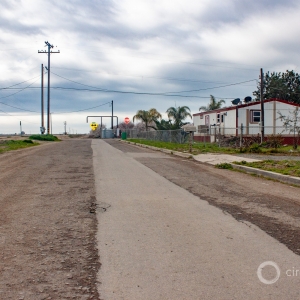The Stream, April 11: Two-Thirds of Glaciers in the Alps On Track to Melt by 2100, Study Warns
The Global Rundown
A study finds that glaciers in the European Alps will shrink by at least two-thirds by 2100. Drought threatens the economies of Kenya and Thailand. The death toll from flooding in Rio de Janeiro, Brazil, rises to 10. Venezuelan President Nicolas Maduro agrees to accept humanitarian aid as nationwide power blackouts continue.
“We confirm our readiness to establish cooperation mechanisms for international assistance and support.” –Venezuelan President Nicolas Maduro on Tuesday, following a meeting with Red Cross chief Peter Maurer. Venezuela has been hit by persistent power blackouts and shortages of food, water, and medicine in recent months, but Maduro has refused international assistance until now. Al Jazeera
Latest WaterNews from Circle of Blue
Despite Billions in Losses and Clear Financial Dangers, Companies Slow to Respond to Water Risks — More businesses track water use, but fewer take the next step of setting targets.
HotSpots H2O: South Sudanese Dying from Thirst and Water-Related Violence — Experts warn that a recent peace deal is precarious and the young country could become embroiled in battles over food and water.
By The Numbers
9 Number of Thailand’s top 35 reservoirs that is below 30 percent capacity, as of April 8. The low reservoir levels come amid an unexpectedly hot, dry season, and could signal the country’s worst drought in years. Analysts say the dry spell will likely impact the country’s already-slowing economy. Bloomberg
10 People who have died due to heavy rains and flooding in Rio de Janeiro, Brazil. A state of emergency was declared for the city after 246 millimeters (9.7 inches) of rain fell on Monday night. The southern part of the city, including several favelas (slum neighborhoods), received the worst flooding. Al Jazeera
In context: Photojournalist’s Notebook: São Paulo’s Portelinha Favela.
Science, Studies, and Reports
A new study warns that glaciers in the European Alps will likely lose half their volume by 2050, and at least two-thirds of their ice by 2100. Scientists say the glacial melt will have far-reaching impacts on farming, hydroelectricity, and wildlife. The Guardian
On the Radar
Kenya’s growing economy will likely be slowed by drought this year, according to the World Bank. The “long rains season,” which typically lasts from March until May, has been slow to start across the country, heightening the possibility of poor agricultural yields. Reuters
Kayla Ritter is a recent graduate of Michigan State University, where she studied International Relations and Teaching English to Speakers of Other Languages. She is currently based in Manton, Michigan. Kayla enjoys running, writing, and traveling. Contact Kayla Ritter








Leave a Reply
Want to join the discussion?Feel free to contribute!